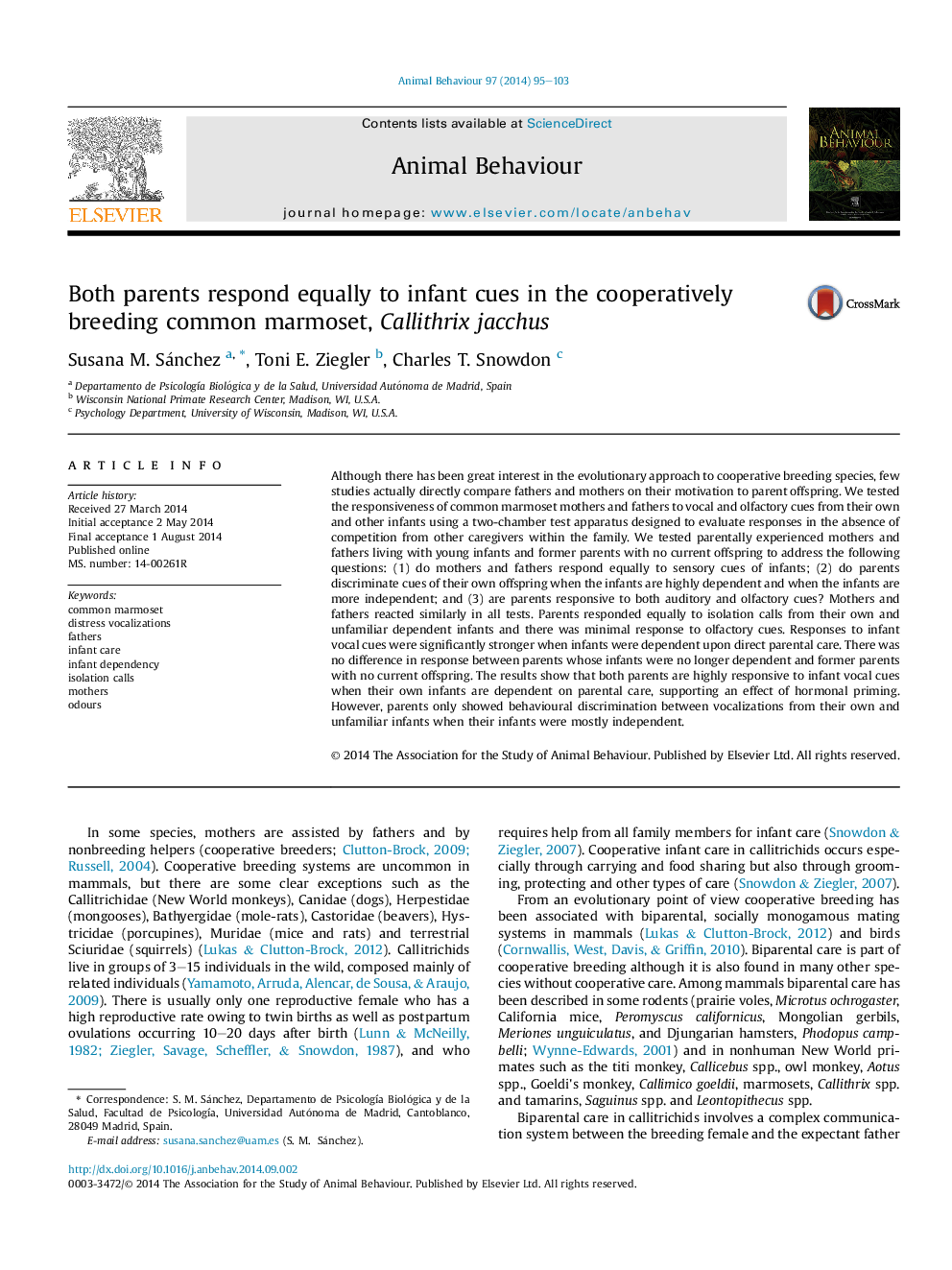| Article ID | Journal | Published Year | Pages | File Type |
|---|---|---|---|---|
| 8490289 | Animal Behaviour | 2014 | 9 Pages |
Abstract
Although there has been great interest in the evolutionary approach to cooperative breeding species, few studies actually directly compare fathers and mothers on their motivation to parent offspring. We tested the responsiveness of common marmoset mothers and fathers to vocal and olfactory cues from their own and other infants using a two-chamber test apparatus designed to evaluate responses in the absence of competition from other caregivers within the family. We tested parentally experienced mothers and fathers living with young infants and former parents with no current offspring to address the following questions: (1) do mothers and fathers respond equally to sensory cues of infants; (2) do parents discriminate cues of their own offspring when the infants are highly dependent and when the infants are more independent; and (3) are parents responsive to both auditory and olfactory cues? Mothers and fathers reacted similarly in all tests. Parents responded equally to isolation calls from their own and unfamiliar dependent infants and there was minimal response to olfactory cues. Responses to infant vocal cues were significantly stronger when infants were dependent upon direct parental care. There was no difference in response between parents whose infants were no longer dependent and former parents with no current offspring. The results show that both parents are highly responsive to infant vocal cues when their own infants are dependent on parental care, supporting an effect of hormonal priming. However, parents only showed behavioural discrimination between vocalizations from their own and unfamiliar infants when their infants were mostly independent.
Related Topics
Life Sciences
Agricultural and Biological Sciences
Animal Science and Zoology
Authors
Susana M. Sánchez, Toni E. Ziegler, Charles T. Snowdon,
